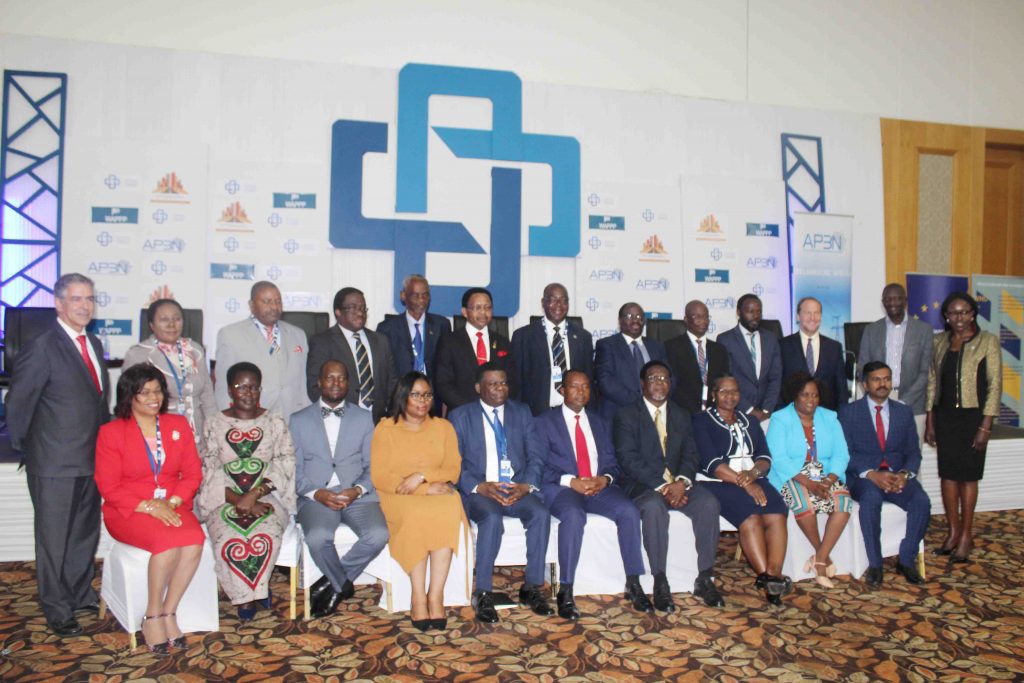
Business
Malawi banks on PPPs to grow its economy
February 27, 2020 / Nelson Gonjani

There is need for the Malawi Government to enter into partnerships with private sector players in order to develop decent public infrastructure which will facilitate economic growth.
Governor of the Reserve Bank of Malawi Dalitso Kabambe made this observation when he launched a high level public private partnerships conference at Bingu International Conference Centre in Lilongwe.
“Government needs a hand from the private sector to build infrastructure for the country’s economic development. For example, the public can build a school with limited hostels and a private company can intervene by building more hostels and start generating business from the same school by renting out the hostels to students,” said Kabambe.
He said good infrastructure is required in different sectors of the economy including education, health, transport, agriculture, tourism, energy and mining in order to attract international investors.
The public private partnership conference, which was held from February 24 to 26, was organized by the Public Private Partnership Commission (PPPC) under the theme ‘’Malawi`s Next Big Thing.”
Kabambe, who launched the conference on behalf of State President Arthur Peter Mutharika, said PPPs are crucial in eradicating poverty through developing the country’s education sector by providing necessary infrastructure to increase the number of people attaining tertiary education.
‘’It is sad that only 2.3% of Malawians have university degrees while 70% from the age of 15 have a Primary School Leaving Certificate of Education [PSLCE], 11% have the Junior Certificate of Education [JCE] and 6% have the Malawi School Certificate of Education [MSCE] as highest qualifications,” he said.
On the health sector, Kambambe explained that there is a need for private investors to partner government in procuring equipment for specialized treatment of a number of diseases which prompt patients to seek treatment in hospitals in foreign countries.
“We have many patients travelling to countries like India and South Africa for medical attention. Government needs the support of the private sector to provide equipment to treat such medical cases,” he said.
On the energy sector, the Governor cited development of the Mpatamanga Hydropower Plant as a role model of how PPPs can work to develop the energy industry.
Power utility Electricity Generation Company (EGENC0) is currently scouting for a strategic equity partner to develop the Mpatamanga Plant on the Shire River through a PPP arrangement.
In the tourism sector, Kabambe said the private sector players need to partner government to construct more hotels in the country’s places of tourism attraction to attract international tourists who bring foreign exchange into the country.
The conference attracted foreign delegates from Africa, Europe, Asia and USA, and officials from World Bank and United Nations Economic Commission for Europe (UNECE).
In her speech, a Ugandan national Beatrice Ikilai who represented UNECE said Malawi stands to adequately benefit from PPPs if it embraces an appropriate model, and her organization is ready to assist Malawi on the course.
Director General for the Nation Planning Commission[NPC] Dr Thom Munthali commented that Malawi can move out of the poverty trap if it commercializes its activities.
Munthali said: ‘’For instance, we have initiated a programme called Agricultural Transformation Initiative, and under this initiative we are educating the farmers to modernise farming practices and commercialise the trade.”
‘’We are almost ready to start the project in Machinga District, the Liwonde area, the area which has been selected because of its suitable soil status.’’
Greg Toulmin from World Bank also commented that the Malawi Government needs to implement new strategies that takes on board private sector financing when developing public infrastructure.
‘’There is need for the private sector to support government by playing a major role in improving the lives of people of Malawi in different angles of life including energy and trade,’’ said Toulmin.































